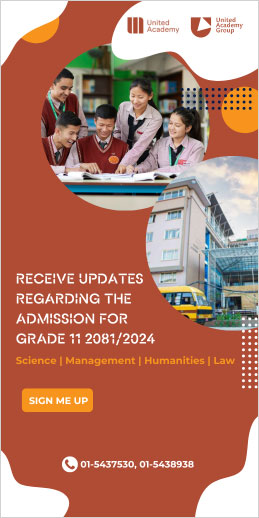
Master Of Arts In Buddhist Studies (MA Buddhist Studies)
Affiliated to: Kathmandu UniversityAbout Course
- Course Title : Master Of Arts In Buddhist Studies (MA Buddhist Studies)
- Category/Level : Masters
- Course Duration (months) : 24 months
- Cost Range (NPR) : NA
- Affiliated to : Kathmandu University
Course Description:
The MA program is a 2-year (4 semester/60 credit) program that combines graduate level seminars with extensive research in primary source literature and languages. The program provides students with the methods and skills required for mature academic research, and develops their ability to undertake independent research projects within the field of Buddhist Studies.
At the beginning of the program each student is assigned a Thesis Supervisor who works with the student on developing the thesis proposal and the thesis itself.
During the first year of study the emphasis is on developing the necessary competence in classical Tibetan and Sanskrit to conduct research in Buddhist primary literature as well as gaining familiarity with the methodological approaches to academic Buddhist studies. In the language classes, students study extensively classical Buddhist literature from the Sanskrit and Tibetan traditions, which provides them with the ability to read complex philosophical material in these primary source languages.
In research seminars, also offered during the first year of study, issues of method in academic research of religion and Buddhism are discussed. These courses introduce the historical development of the study of religion and enable the graduate student to engage in critical scholarship and research.
In the second year, the focus is turned toward the practical application of the skills acquired during the first year of study, culminating in the writing of the MA thesis. Working with an experienced thesis supervisor, the student formulates a thesis project and spends the first semester studying the necessary historical, literary, and philosophical background materials before spending the second semester on the writing of the thesis itself, likewise guided by the thesis supervisor.
Admission info
To be admitted to the MA Program, a student should have a Baccalaureate degree from an accredited academic institution containing:
? Four courses (12 credits) in Asian Religion or Buddhist Studies.
? Two courses (6 credits) in Classical Tibetan and/or Sanskrit.
Meeting the minimum entrance requirements does not automatically guarantee admission. All qualified applications are subject to final approval by the Graduate Committee at CBS. Applicants holding an appropriate degree without all required elements may still qualify to enter the MA program by completing preparatory course work as prescribed by the Graduate Committee at CBS.
1. Application Form and Statement of Purpose
The application form is available online at the CBS website. The application form consists of two parts: 1) The general application, and 2) the statement of purpose. For the statement of purpose, it is reccommended to write it separately in a word processor and paste it into the essay portion of the application form. This statement (500-75 words) should describe the applicant's general background, academic interests and reasons for applying to the MA program at CBS.
2. Application Fee
For Nepalese citizens, the application fee is 500 NRs, to be paid at the CBS office in Boudhanath. For international students, the application fee is US $50. International students can pay the application fee online at the CBS website or by sending a check to:
Rangjung Yeshe Institute
PO Box 21277
Kathmandu, Nepal
Note: Due to the time it takes for regular mail to reach Nepal, sending regular checks may delay your application process by 3 to 4 weeks.
3. Official Transcript of BA Degree
The official BA transcript should be sent directly from the applicant's college or university to CBS. Applicants who are in the last year of their undergraduate studies should submit a current official transcript of grades and courses. Entry into the MA program may then be granted conditional upon successful completion of the BA degree prior to the commencement of the MA program.
4. Letter of Reference
Applicants should request a letter of recommendation evaluating the applicant's suitability as a graduate student in Buddhist Studies. This letter should be requested from a college or university professor familiar with the applicant's academic qualifications. The recommending professor should submit this letter to the applicant in a signed and sealed envelope. The applicant should include the letter of recommendation with the remaining application material.
5. Demonstration of Proficiency in English
All applicants whose native language is not English are required to submit a TOEFL Test (Test of English as a Foreign Language) with scores of minimum 250 on the computer based exam (or minimum 600 on the paper based test). However, applicants who have graduated from a college or university where classes are taught in English are not required to submit TOEFL scores if they provide documentation that English was the language of instruction. Due to the limited availability of the TOEFL testing in Nepal, Nepalese applicants may demonstrate their English proficiency by completing a test administered by the Graduate Coordinator at CBS. Such applicants should contact the office at CBS to arrange the date of testing.
Evaluation, Admission, and Notification
Once all components of the application have been received, the Graduate Committee will review the application. Normally, a decision on admission will be made within one month and students will be notified of the outcome via email. Successful applicants must then accept or decline the admissions offer within two weeks in an email reply. To secure their place in the program, international students who accept the admissions offer, must then submit full tuition for either one or two semesters, or a deposit of US $500. The remainder of the tuition will be due on the first day of classes.
All documents should be sent to the following address:
The Graduate Coordinator
Centre for Buddhist Studies
Kathmandu University
P.O. Box 21277
Kathmandu, Nepal
Syllabus
| Semester 1 | Credits |
| Advanced Buddhist Readings I - Tibetan I (BSTD 501) | 6 |
| Advanced Buddhist Readings II - Sanskrit I (BSTD 503) OR Buddhist Philosophical Traditions I (BSTD 507) |
6 |
| Research Seminar I (BSTD 505) | 3 |
| Semester 2 | Credits |
| Advanced Buddhist Readings III - Tibetan II (BSTD 502) | 6 |
| Advanced Buddhist Readings IV - Sanskrit II (BSTD 504) OR Buddhist Philosophical Traditions II (BSTD 508) |
6 |
| Research Seminar II (BSTD 506) | 3 |
| Semester 3 | Credits |
| Specialized Textual and Historical Studies (BSTD 601) OR Buddhist Philosophical Traditions III (BSTD 604) |
6 |
| Guided Studies (BSTD 602) | 6 |
| Research Seminar III (BSTD 603) | 3 |
| Semester 4 | Credits |
| MA Thesis (BSTD 610) | 15 |
Course Descriptions
BSTD 501 Advanced Buddhist Readings I 6 credits
BSTD 502 Advanced Buddhist Readings II 6 credits
BSTD 503 Advanced Buddhist Readings III 6 credits
BSTD 504 Advanced Buddhist Readings IV 6 credits
These courses are readings undertaken by students individually with a weekly 3-hour plenary session. The texts read in this course are normally classical Mah?y?na texts from the Sanskrit and Tibetan literary traditions but may also include other genres such as, for example, historical, political, medical and polemical literature. The
purpose of the courses in Advanced Buddhist Readings is to provide students with the ability to read complex philosophical material in the primary source languages for Buddhism in the Himalayan context.
Prerequisites: For BSTD 501, BSTD 503: None.
Prerequisites: For BSTD 502, BSTD 504: Completion of BSTD 501 and BSTD 503.
Course requirement: One paper and one oral examination per course.
BSTD 505 Research Seminar I 3 credits
BSTD 506 Research Seminar II 3 credits
BSTD 603 Research Seminar III 3 credits
The Research Seminars are courses on research method and contemporary issues in modern scholarship. Discussed in these courses are the methodological issues involved in academic research of religion in general and Buddhism in particular. The courses introduce the student to the historical development of the study of religion while making use of specific case studies to analyze scholarly methods of particular influence to the study of Buddhism. The seminars are taught in weekly 3-hour plenary sessions requiring active student participation as an important means for developing the ability of the graduate student to engage in critical scholarship and research.
Prerequisites: None.
Course Requirements: One paper and one oral examination per course.
BSTD 507 Buddhist Philosophical Traditions I 6 credits
BSTD 508 Buddhist Philosophical Traditions II 6 credits
BSTD 604 Buddhist Philosophical Traditions III 6 credits
This is a series of specialized courses in Buddhist philosophy and scriptural interpretation. The aim of this series is to deepen the knowledge of complex. Buddhist philosophical topics and their relations to the broader field of Buddhist studies. Course readings are primarily classical Indian treatises and their Indo-Tibetan commentaries in areas of classical Buddhist philosophy, such as abhidharma, madhyamaka, and yog?c?ra thought. While studying specialized topics of Buddhist philosophy, students are encouraged to relate the material to larger perspectives within the context of contemporary philosophical issues.
Prerequisites: None
Course requirement: Two papers and one oral examination per course.
BSTD 601 Specialized Textual and Historical Studies 6 credits
This course is a study in a relevant area of the larger topical background within which the student's thesis will be located. The topic of study is chosen by the student in consultation with the Thesis Supervisor. The course is an opportunity for the student to acquire a broad knowledge of the historical, social, and religious background for
the thesis topic in order to properly contextualize the narrower field within which the actual thesis research takes place. The course is taught as weekly 3-hour seminar sessions where the literature and cultural history of the thesis topic is discussed and analyzed in plenum with the Thesis Supervisor and other students.
Prerequisites: Successful completion of both BSTD 501 and BSTD 502.
Course requirement: One paper and one oral examination.
BSTD 602 Guided Studies 6 credits
This course is a specialized study in the topic of the thesis during which the student is familiarized with the relevant primary and secondary literature in the area of study. The student is guided in the textual study by the Thesis Supervisor and, during weekly meetings, the wide variety of methodological approaches to the field
of Buddhist Studies such as philology, historiography, philosophy, textual criticism, sociology, anthropology, art history, etc. are discussed in terms of their relevance for the academic study of Buddhism in general and especially in relation to the topic chosen for the thesis.
Prerequisites: Successful completion of BSTD 502.
Course requirement: One oral examination.
BSTD 610 MA Thesis 15 credits
The thesis should represent a thorough knowledge of Buddhism and demonstrate the ability to engage with primary source material for research purposes. By the sixth month of enrollment into the MA program, the student must submit a Thesis Proposal (approx. 1,800 words), developed in collaboration with the Thesis Supervisor, for approval by the Graduate Committee at CBS. In order to proceed to the third semester of study it is a requirement that this committee approves the thesis proposal. The length of the thesis is restricted to a maximum of 25,000 words. The defense of the thesis is carried out in examination by the Thesis Supervisor,
and an External Examiner appointed by the Graduate Committee at CBS as per KU policy.
INQUIRY / APPLY COURSE
Offered by
Colleges offering Master of Arts in Buddhist Studies (MA Buddhist Studies) (Kathmandu University) are as follows:























